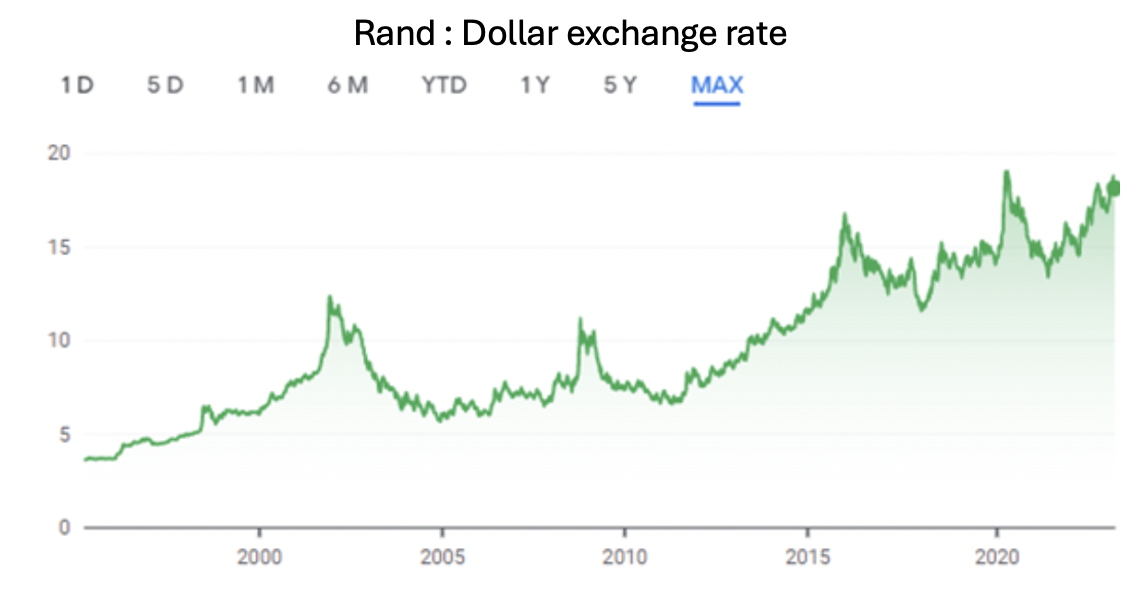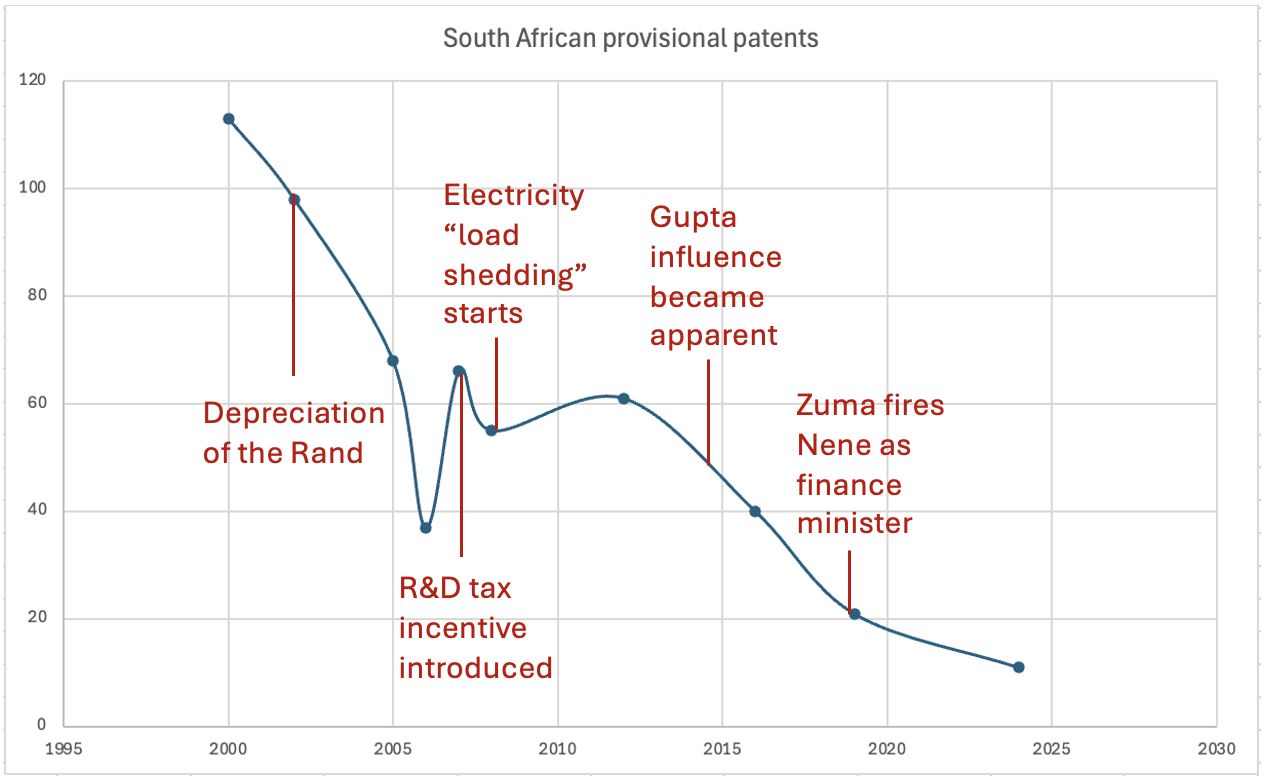Change in R&D activity by South African companies over the past 25 years
We identified South African companies with the highest R&D activity in 2000 and tracked their R&D activity over the next 25 years, to determine whether external factors may have influenced their level of R&D activity.
In 2000, the nine most active companies filed 113 South African provisional patents. This reduced by +90% over the next 25 years. Why?
Depreciation of the Rand and the introduction of Capital Gains Tax?
The period 2000 to 2006 saw a significant 67% decline in R&D activity.
Although sentiment within South Africa was generally negative during this period, the only significant external factors that may have influenced R&D activity were: (i) depreciation of the Rand up to the end of 2002; and (ii) introduction of Capital Gains Tax in October 2001.

However, since the general negative trend continued during 2002-2005, it is questionable whether these two factors were the cause of the decline – the decline appears to have fed off its own momentum, exacerbated by skills emigration.
Introduction of the R&D tax incentive in 2006
In 2006 the R&D tax incentive was introduced into the South African Income Tax Act. The aim was to stimulate R&D activity within South Africa by increasing the deductions that may be claimed in respect of qualifying R&D activities. This was followed by the election of Jacob Zuma as the head of the ANC in December 2007.
At first glance, it appears that the R&D tax incentive may have arrested the decline in R&D activity. However, this is questionable due to the bureaucracy involved in accessing it and the relatively low adoption of the incentive by taxpayers.
Load shedding
Significant electricity load shedding started in 2007. Despite the economic and practical effects of load shedding and its erosion of people’s belief in the medium to long-term potential of the country, the next 5 years saw sentiment stabilising, as fiscal discipline was ostensibly being maintained.
Guptas and firing of Finance Minister Nene
From 2014, the influence that the Guptas wielded over the South African government became glaringly apparent, with many South Africans raising the white flag when Nene was fired as the Finance Minister in October 2018.
Pandemic
The pandemic in 2020, coupled with the steep depreciation of the Rand and increase in interest rates caused significant economic stress in South Africa, which persisted into 2025.
Conclusion
The +90% decline in R&D activity by the top South African provisional patent filers over the past 25 years cannot be attributed to a single event, but rather a series of events that repeatedly undermined sentiment, driving a downward momentum that is hard to arrest and incredibly difficult to reverse.
R&D activity appears to follow general sentiment, i.e. whether companies believe: in the future of South Africa; that investing in South Africa is preferably to investing elsewhere; that value created in South Africa will be preserved; and that South Africa is where they wish to continue to trade.
Many companies (+20% of our sample … from the top of the list) have over the past 25 years moved offshore – this R&D loss is permanent.
The focus will need to be on replacing these these companies and arrest the general decline in sentiment. But, for as long as the first consideration of most hopeful South African R&D companies is to structure themselves offshore, something exceptional is required.

